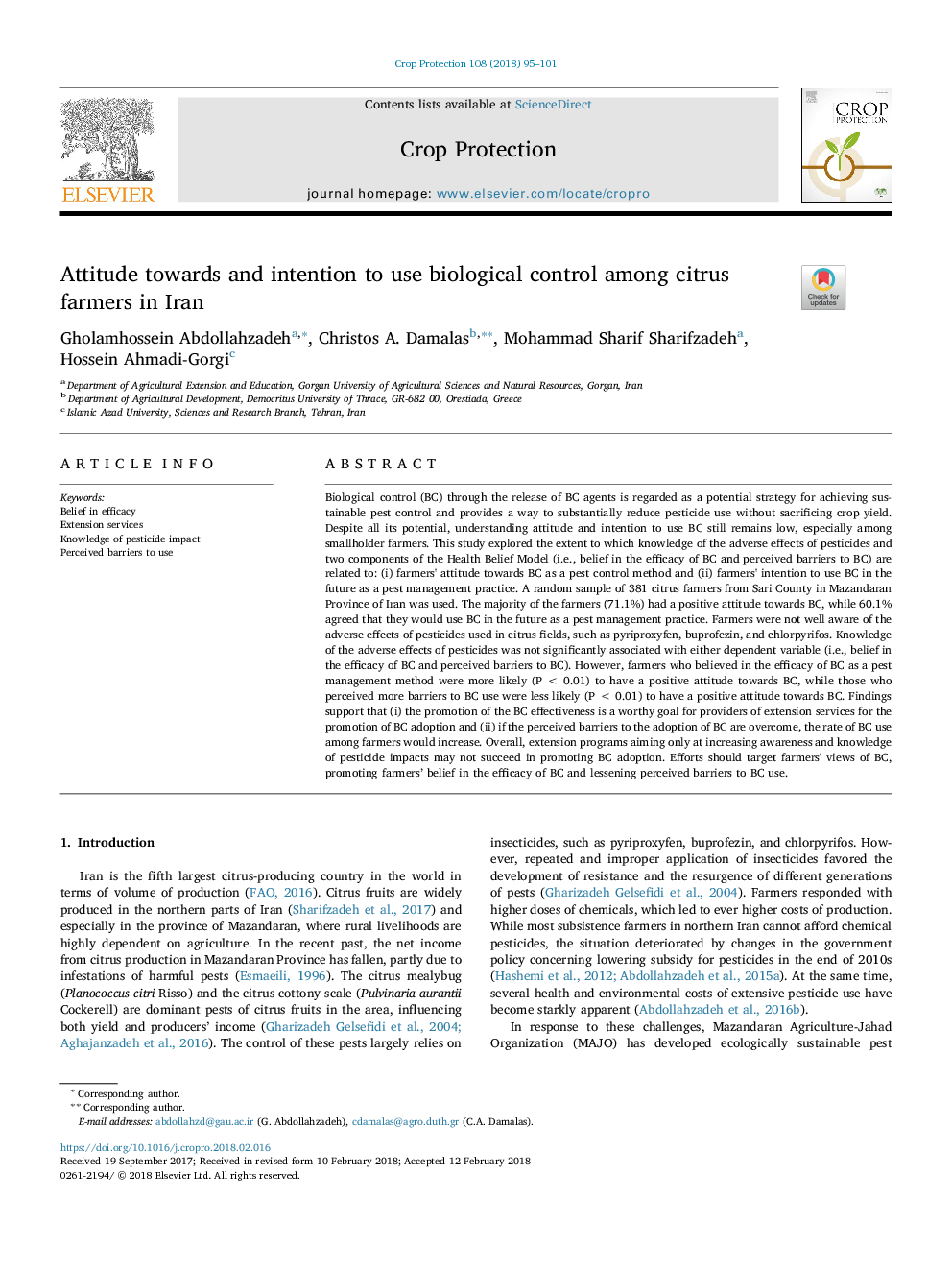ترجمه فارسی عنوان مقاله
نگرش و قصد استفاده از کنترل بیولوژیک در میان کشاورزان مرکبات ایران
عنوان انگلیسی
Attitude towards and intention to use biological control among citrus farmers in Iran
| کد مقاله | سال انتشار | تعداد صفحات مقاله انگلیسی |
|---|---|---|
| 153065 | 2018 | 7 صفحه PDF |
منبع

Publisher : Elsevier - Science Direct (الزویر - ساینس دایرکت)
Journal : Crop Protection, Volume 108, June 2018, Pages 95-101
ترجمه کلمات کلیدی
اعتقاد به کارآیی، خدمات پسزمینه، آگاهی از تاثیر آفت کش ها، موانع درک شده برای استفاده،
کلمات کلیدی انگلیسی
Belief in efficacy; Extension services; Knowledge of pesticide impact; Perceived barriers to use;

